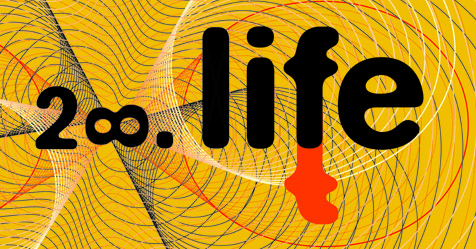Post-screening talks with German filmmaker Christian Petzold
Road movies reinvented – on the run
The Christian Petzold Tribute started last night with The State I Am In (Die innere Sicherheit, 2001); in the afternoon the Avantpremieres section featured his latest cinematic offering, Transit (2018) – the director joined us after the Kosovel Hall and the Slovenian Cinematheque screenings for a Q&A. He initially revealed that the movie was dedicated to his long-standing friend, collaborator and mentor Harun Farocki whose death in 2014 postponed the movie release until 2018. He further elaborated that while he was an heir to the German Protestant spirit and thus appreciated coherent structure – it goes without saying that during the midnight debate the director also spoke about his favourite philosopher Hegel and Adorno’s question what this philosopher would think of us today –, Farocki preferred to accentuate closeness and evoke strong emotions. Transit, based on the eponymous novel by Anna Seghers who wrote it while fleeing into exile to escape the Nazis, is an utterly contemporary film. Petzold described it as “an allegory of fascism from WWII.” The intertwinement and analogies of both situations are also reflected in the effective and uneclectic mixture of period props and the cityscape of contemporary Marseille. The film succeeds in capturing the emotional warmth among refugees and the simultaneous impossibility of stable relationships as the only stock topos is transit: the escape during which people face a traumatic death every step of the way. While allegedly more democratic, countries in transition seem just as militant as the ones refugees are fleeing from. Petzold shows a sceptical attitude towards states also in The State I Am In – a viewpoint he expressed during the interesting post-screening Q&A. Festival Director Simon Popek and Liffe Programme Board member Tina Poglajen talked with the filmmaker in the Slovenian Cinematheque. The State I Am In is an intimate yet political account of a family of German ex-terrorists who live in hiding. The title (German: Die innere Sicherheit or “inner security, inner peace”) is multi-layered if not ironic, as there is no inner peace when one is hiding from the authorities. In his movie, the director included a scene from Nuit et brouillard, a documentary by Alain Resnais, which he considers to be a key work by both humanistic and filmmaking standards. The movie that shows concentration camps was screened in German schools and profoundly influenced both Petzold and Farocki. The director was straightforward, “fascism is like a virus infecting a country that needs to be cured,” as well as provocative: “Today’s refugees are former terrorists.” Petzold also talked about choosing music for his films, about the challenges of a limited budget, the role of memory and impressions in his writing, the differences between TV and film, and the influence of Casablanca on his latest feature film. The other films comprising the Tribute to German filmmaker Christian Petzold are not to be missed.
Nataša Šušteršič
Photo Iztok Dimc








